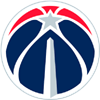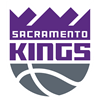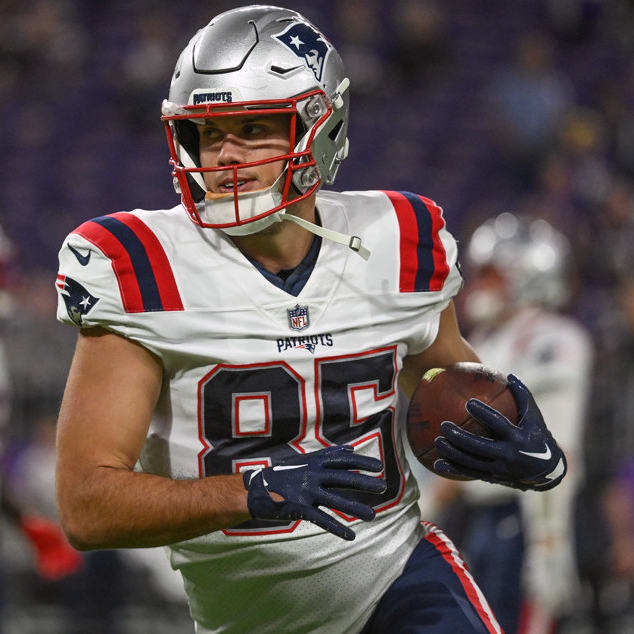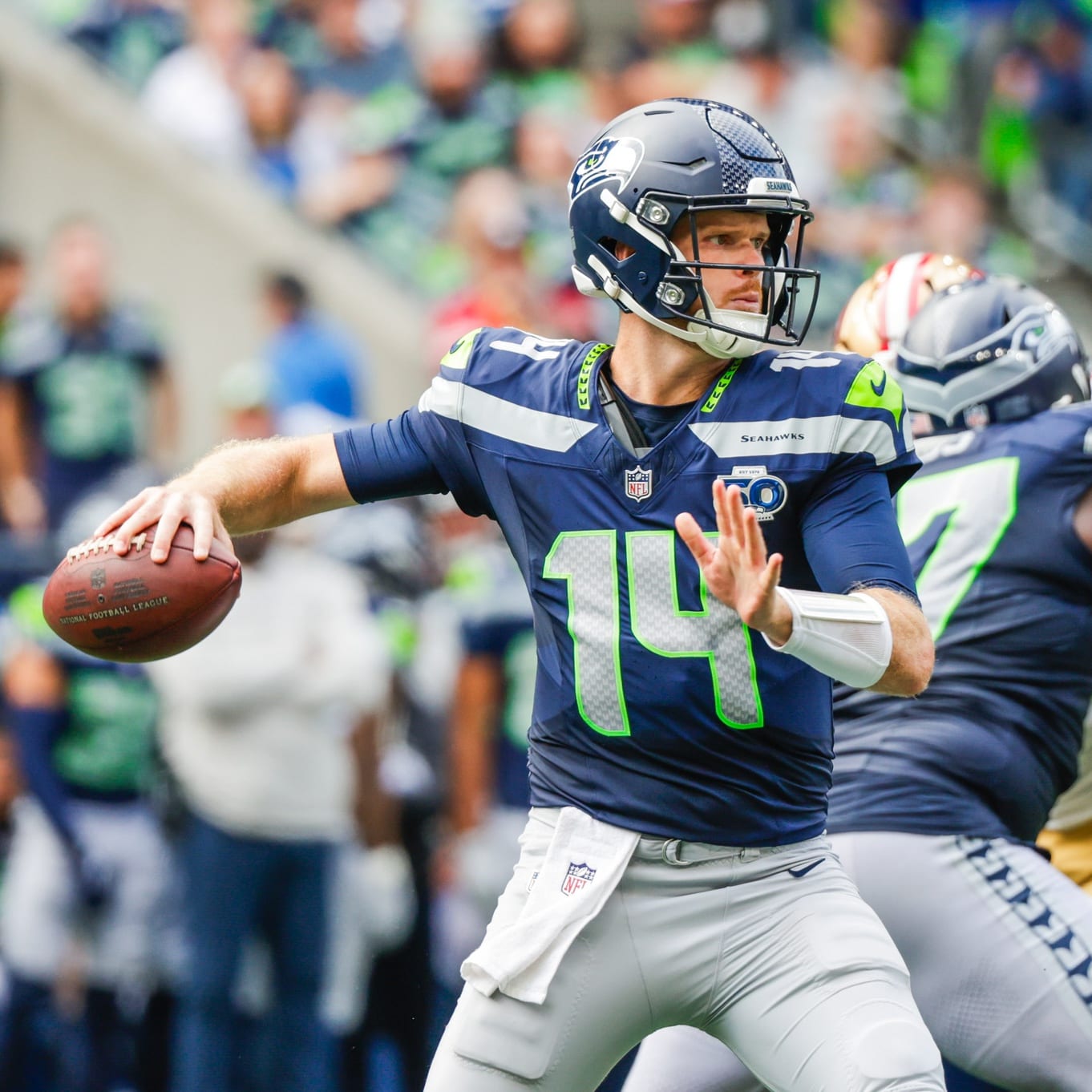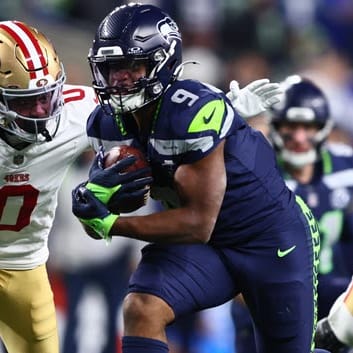This is the third of my four articles surveying the landscape for breakout players in 2024. The first edition focused on talented players that were held back by injuries in past seasons but should now thrive (if they can just stay healthy). The second article discussed players that are likely to benefit from working with new coaches/coordinators/teams after having suboptimal situations in previous years.
Below we'll look at another group: young players that may break out simply by improving their own skills as they progress from Year 1 to 2 in the NFL. Some had fantasy football value in 2023 and now have the chance to crank it up a notch or two, while others didn't score many points as rookies but are talented enough to leap forward.
As cautioned in the previous articles, this isn't necessarily a Draft These Guys list. It's meant to be a broad survey of possibilities, giving readers a range of options and some context to help hone in on preferred breakout candidates before draft season. If you want my personal opinions, you can find them at the bottom of each write-up, where you'll see the player's early fantasy football ADP and my conclusion on whether they're underpriced, overpriced or fairly priced.
A lot of players fall into more than one of the four breakout categories I'm using, and in those cases they're listed under whichever I find more relevant. You won't see Anthony Richardson discussed below because he was already listed in the injury-themed breakout article. It was an injury, rather than lack of experience, that prevented him from being a valuable fantasy player last year (at least in my opinion). Many of the guys below are in better situations than they were a year ago, but the key component for improved fantasy value in each case is the player's own development/skill.
The Candidates
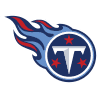 QB Will Levis
QB Will Levis
Levis threw four TD passes in his NFL debut and then four more across 226 subsequent pass attempts, largely struggling after some early success connecting downfield with WR DeAndre Hopkins. Levis had the worst completion percentage (58.4) among qualified passers, the fifth-highest sack rate (9.9 percent) and fifth-lowest TD rate (3.1). The Titans went 3-6 in his starts, averaging 17.3 points per game, and they fared only marginally better in Ryan Tannehill's eight starts (3-5, 18.6 ppg). There were a few positives from Levis' rookie season — including the seventh-lowest INT rate out of 32 qualified passers while having by far the deepest aDOT (10.8) — even though he was stuck behind a struggling O-line and didn't have much receiving help apart from Hopkins.
The young QB has a much better setup for Year 2, with former Bengals offensive coordinator Brian Callahan taking over as Tennessee's head coach and getting a talent infusion via free agency. The Titans spent big on WR Calvin Ridley and former Broncos center Lloyd Cushenberry, later adding OT JC Latham with the seventh overall pick and WR Tyler Boyd as a discount signing post-draft. Ridley and Latham will be particularly important if Levis continues to favor downfield throws, though it's a near-certainty that Callahan emphasizes taking more short, easy completions the way Joe Burrow does for Cincinnati.
- Early ADP: Round 16 (181.1) / ADP Verdict: Slightly Underpriced
Coming off a rookie season with 1,468 scrimmage yards, Robinson has one of the highest non-injury floors among running backs and is rightfully a first-round pick in nearly every single-QB fantasy draft. That doesn't mean there's no profit potential at his lofty ADP, as Robinson is on the short list of running backs talented enough to challenge a healthy Christian McCaffrey for RB1 status. Tyler Allgeier remains a potential complication, but it's also possible Robinson's combination of speed, power, agility and receiving skills eventually make his backfield mate a seldom-used afterthought. The Falcons have a good offensive line, and Kirk Cousins' presence under center should ensure that the offense is competent and Robinson is getting plenty of targets.
- Early ADP: Round 1 (7.0) / ADP Verdict: Fair Price
I don't like Achane at his second-round ADP, and yet it seems egregious to omit him from this list after what he did as a rookie last year, averaging 7.7 YPC while scoring 11 touchdowns in 11 games. It was spectacular in real life but perhaps less valuable for most fantasy managers, in part because Achane was mostly on benches when he erupted for 233 total yards and four TDs in the infamous Week 3 blowout of Denver. He had a game with only three snaps in Week 11, and later had a three-game stretch (Weeks 14-16) averaging 10.7 touches for 54.7 yards with no TDs.
It all makes Achane one of the more fascinating players for fantasy in 2024... even more so because he's still sharing a backfield with 2023 NFL touchdowns leader Raheem Mostert. The first challenge for Achane is to take more snaps and carries away from Mostert. The second challenge is to stay healthy. And then the final challenge is to keep churning out big plays in Mike McDaniels' elite scheme (even if the offensive line takes a small step back after losing RG Robert Hunt in free agency). Achane doesn't have the best volume projection among running backs, but his combination of speed and scheme fit hint at massive production if he eventually ends up with workhorse usage.
- Early ADP: Round 3 (26.9) / ADP Verdict: Overpriced
 RB Chase Brown
RB Chase Brown
Brown is a 2023 fifth-round pick who played only 93 snaps on offense as a rookie, but he finds himself in a promising situation after the Bengals swapped out Joe Mixon for Zack Moss. While it's likely just a small downgrade, if that, the lack of an incumbent starter could open things up a bit for Cincinnati's depth backs. Brown was the most promising of that bunch last season, and he also has the best combination of size, speed and pass-catching skills to handle a three-down role if Moss misses time.
Brown ran a 4.43 40 during the 2023 Combine, at 5-foot-10, 209 pounds, and the Bengals didn't add any new running backs besides Moss and a couple of undrafted rookies. There's simply not much backup competition for Brown, who got a hand-off or target on 63.4 percent of his snaps last year en route to 44 carries for 179 yards (4.1 YPC) and 14 catches for 156 yards (11.1 YPR). He'll now have an opportunity to take on more snaps and touches in what should be a top-10 offense.
- Early ADP: Round 10 (119.5) / ADP Verdict: Slightly Underpriced
This one probably requires an injury, which explains why Charbonnet typically goes outside the top 100 picks. Kenneth Walker isn't quite a top RB, but he's run for 1,955 yards and 17 TDs through 30 games, averaging 65.2 rushing yards per game and 4.4 per carry. In other words, he's been good enough to maintain a significant role even if Charbonnet ultimately proves himself the superior player, which in its own right is far from a guarantee (he averaged only 34.2 total yards in 13 games when Walker was healthy last year).
Fantasy upside scenarios for Charbonnet thus demand Walker missing time with an injury, getting benched for fumbling, etc.. If that were to happen, it might lead to Charbonnet taking larger workloads than Walker had been getting before, as was the case Weeks 11-13 last season when the rookie had 59 touches for 226 yards in a three-game stretch against three playoff teams (LAR, DAL, SF). Charbonnet's combination of passing-down experience, draft capital (second round) and size (6-1, 214) makes him one of the few backup RBs with upside for 20 touches per game in the event he ends up starting. It doesn't hurt that Walker and Charbonnet are the only Seattle RBs that have taken an NFL carry, with the summer depth chart otherwise containing 2023 seventh-round pick Kenny McIntosh and a trio of 2024 UDFAs (George Holani, Kobe Lewis, Ricky Person).
- Early ADP: Round Round 12 (134.7) / ADP Verdict: Underpriced
McLaughlin's stature (5-foot-7, 187 pounds) suggests workload limitations in the NFL, even though he had 1,250 carries across five college seasons, including back-to-back years in 2018-19 with more than 300 totes and 2,000 rushing yards at DII Notre Dame (OH). He may not have the same ceiling as Javonte Williams — who was mentioned in a previous breakout article — but RB2 fantasy status isn't out of the question for McLaughlin.
He was easily Denver's most effective runner last year, earning a Week 1 role as an undrafted rookie and averaging 5.4 YPC on 76 carries at a 53.9 percent success rate. QB Lamar Jackson was the only qualified rusher to average more yards per carry, and only eight qualified RBs had a higher success rate.
McLaughlin also caught 31 of 36 targets, albeit for only 5.2 yards per catch, playing in an offense that provided a league-high 153 targets for running backs. McLaughlin could now take some of the targets that went to Williams (58) or Samaje Perine (56) in 2023, especially if coach Sean Payton wants to emphasize speed and elusiveness over blocking ability on passing downs. There's a path to something like one-third of Denver's RB rushing volume and 45 percent of the passing volume, which would have amounted to 115 carries and 69 targets last season. It would help if the Broncos cut or traded Perine, whose combination of solid blocking and reliable hands made him Payton's preferred RB for passing downs in 2023.
- Early ADP: Round 14 (159.8) / ADP Verdict: Fair Price
 WR Zay Flowers
WR Zay Flowers
Both guys averaged 13 PPR points as rookies, providing WR3 fantasy value immediately. A big step forward is possible in both cases, but it isn't guaranteed. Addison is depending on Sam Darnold or rapid progress by J.J. McCarthy, while Flowers has QB stability but no assurance of role/volume growth. The addition of RB Derrick Henry cements Baltimore's offense as one of the most run-heavy in the league, and a healthier season from TE Mark Andrews could eat into Flowers' target share.
For Flowers, the key to progressing as a fantasy asset will be adding more production on intermediate routes/targets. He got just 15.4 percent of his targets 10-19 yards downfield last year, but he was efficient with those chances, catching 12 of 16 passes for 162 yards and two TDs. Flowers had more than twice as many receptions behind the line of scrimmage (26) and averaged only 3.8 yards per catch on those plays.
Addison, on the other hand, caught only five passes behind the line of scrimmage and had 390 yards on 40 targets in the 10-19 yard range (including four TDs). He probably needs more short passes to break out in fantasy, especially for PPR leagues, and it would help if he did more after the catch on those quick throws as well (he averaged only 3.4 YAC on 40 receptions within 10 yards of the LOS last year).
- Flowers Early ADP: Round 3 (33.9) / ADP Verdict: Overpriced
- Addison Early ADP: Round 6 (7.0) / ADP Verdict: Underpriced
JSN is neither particularly big nor fast, and he had the sixth-highest drop rate (7.5 percent) among qualified wide receivers during his rookie season. He also had the third-shallowest aDOT (5.9) at his position, seeing a lot of screens and manufactured targets while mostly lining up as the slot specialist behind veteran wideouts DK Metcalf and Tyler Lockett.
Smith-Njigba ultimately drew 93 targets, only 29 fewer than Metcalf and 26 fewer than Lockett, even though he didn't get many opportunities to use his route-running prowess to beat defenders on slower-developing plays downfield. The combination of a new coaching staff and Lockett being another year older could help Smith-Njigba get those chances this season, although it doesn't totally negate concerns about a crowded WR room in a non-elite offense, not to mention lingering questions about Smith-Njigba's athleticism after a rookie year with just 10 yards per catch.
- Early ADP: Round 7 (77.6) / ADP Verdict: Slightly Overpriced
It might seem a little strange to list Wicks but not Jayden Reed, who is also a second-year pro and coming off a far more productive rookie season. Any gains Reed makes in total target volume (93 last year) could be canceled out by lost touchdowns (eight rushing, two receiving), and it's hard to envision massive target numbers for any one player in Green Bay's deep receiving corps. Reed will probably have more catches but fewer touchdowns in his second season, while Wicks figures to have more of both compared to his rookie year.
The fifth-round pick had receiving lines of 6-97-0 and 6-62-1 in the two games he played more than two-thirds of Green Bay's snaps last season, proving himself capable of handling more volume after an extended stretch as an effective No. 4 receiver. Wicks finished the regular season with a 21.2 percent target rate and 2.13 yards per route run across 273 routes — similar numbers to Reed's 23.1 percent and 1.95 YPRR (on 407 routes). FWIW, Romeo Doubs was at 19.3 percent and 1.35 YPRR, with Christian Watson at 19.9 percent and 1.58 YPRR, i.e., the two rookies were the top two on the team in target rate and yards per route.
- Early ADP: Round 10 (118.7) / ADP Verdict: Slightly Underpriced
Douglas came in as a sixth-round pick last year and immediately made an impression in spring practices and then training camp, which earned him a role as New England's slot receiver for Week 1. He started getting more perimeter reps after Kendrick Bourne suffered an ACL tear Week 8, but Douglas still played in the slot more often than not down the stretch. He had at least five targets and three catches in each of his last nine games, averaging 4.3 receptions for 46.4 yards on 6.9 targets.
While the numbers don't look efficient, Douglas was stuck in a miserable offense and held his own even on perimeter snaps (1.77 YPRR, per PFF, compared to 1.67 in the slot). Some have given Douglas the slot-only label because he's 5-foot-8, but don't rule out the possibility he's effective as a smaller Z receiver, something like 2023 draft-class mate Zay Flowers (5-9, 182). Douglas ran the 40-yard dash only .02 seconds slower than Flowers did (4.44 vs. 4.42) at the 2023 Scouting Combine, where the sixth-round pick had similar measurements (5-8, 178) and much better results in the vertical jump (39.5 vs. 35.5 in) and broad jump (134 in. vs. 127).
Douglas is the fastest Patriots receiver locked in for a roster spot, after leading the team with 568 receiving yards in 14 games last season. He's still looking for his first NFL touchdown, but that shouldn't take long if he wins the Z receiver job this summer (instead of being limited to slot snaps in three-wide formations).
- Early ADP: Round 15 (178.2) / ADP Verdict: Very Underpriced
 WR Marvin Mims
WR Marvin Mims
Mims probably has the lowest probability for a breakout on this list, which is reflected in his early ADP well outside the Top 150. While he shouldn't be picked much earlier, it's not like his rookie season was entirely negative — he had three receptions of 37-plus yards over the first three weeks — and even now he's a 22-year-old with 4.38 speed and second-round draft capital (plus a Pro Bowl selection for returning kicks). Mims was 21 for his entire rookie year, after an early declaration, and being stuck in a bad/confused offense only made things harder.
The Broncos offense probably won't be good this year, but Bo Nix at least brings some hope at quarterback, and WR Jerry Jeudy's departure frees up a starting job opposite Courtland Sutton. As much as Sean Paton likes to rotate his skill-position players, there's some chance Mims or rookie Troy Franklin makes enough of an impression to earn a near-every-down role (unlike Jeudy, who played 65.7 percent of snaps as the No. 2 receiver last year). The Broncos otherwise have veteran wideouts Josh Reynolds and Tim Patrick, neither of whom has ever been targeted at a high rate even when starting and playing a lot of snaps.
The key for Mims is to become more comfortable running short routes and putting his return skills to use after the catch. Last year he saw a mix of deep passes and manufactured touches on his limited snaps, with 21 of 33 targets coming either 20-plus yards downfield (11) or behind the line of scrimmage (10). Mims caught five of the deep balls for 246 yards, but he averaged only 4.4 yards per reception on his catches behind the line. He has the speed and agility to be a threat after the catch even though he's thin (5-11, 182), which means there's an upside scenario where Mims develops into a more complete receiver and becomes the volume/YAC threat that Nix and Payton need (and Sutton won't be).
- Early ADP: Round 15 (175.3) / ADP Verdict: Fair Price
Kincaid is on the short list of tight ends that have a chance to lead their teams in targets even if the top wide receiver plays a full season. Curtis Samuel and second-round pick Keon Coleman may be functional replacements for Stefon Diggs and Gabe Davis, but neither is guaranteed to top the 91 targets that Kincaid drew as a rookie (he caught 73 of those, 80.2 percent, albeit for only 9.2 yards per catch).
Kincaid could see a lot more volume in his second pro season, especially if he does more post-catch damage after averaging 4.5 YAC last year. The below-average number was perhaps surprising given that Kincaid's excellent work after the catch at Utah seemed to be a big part of why the Bills drafted him in the first round (thereby choosing Kincaid over Sam LaPorta and Michael Mayer).
There are perhaps two paths to a fantasy breakout now. Behind Door 1, Kincaid could do it with a huge volume of short targets like Evan Engram, relying on sheer quantity of receptions rather than big plays and touchdowns. Behind Door 2 is a more modest increase in target volume, supplemented by more downfield routes, big plays and TDs than Kincaid had last season. Either way, Kincaid enters his second season with a legitimate chance to become Josh Allen's favorite pass catcher.
- Early ADP: Round Round 5 (51.7) / ADP Verdict: Fair Price
A second-round pick last year, Musgrave was the rare rookie tight end to have a huge role right away, playing at least three-fourths of offensive snaps in his first three games. He suffered a concussion Week 4 and an ankle injury Week 7 without missing any games, but he later sat out Weeks 12-17 due to a severe kidney laceration. Musgrave came back for Week 18 and the playoffs, but he'd lost weight while recovering from the internal injury and played behind fellow rookie Tucker Kraft (a third-round pick) through the playoffs.
Kraft was more productive as a pass catcher in Musgrave's absence than Musgrave himself had been earlier in the season, in part because the latter had injury limitations/exits in two of his starts. Musgrave finished the season with an 18.2 percent target rate and 1.39 yards per route run, compared to Kraft's 15.3 percent and 1.36 YPRR. While there's a chance the two cannibalize each other moving forward, Musgrave has a nice opportunity to re-establish himself as a starter this spring/summer while Kraft recovers from a torn pectoral.
- Early ADP: Round 13 (156.0) / ADP Verdict: Fair Price


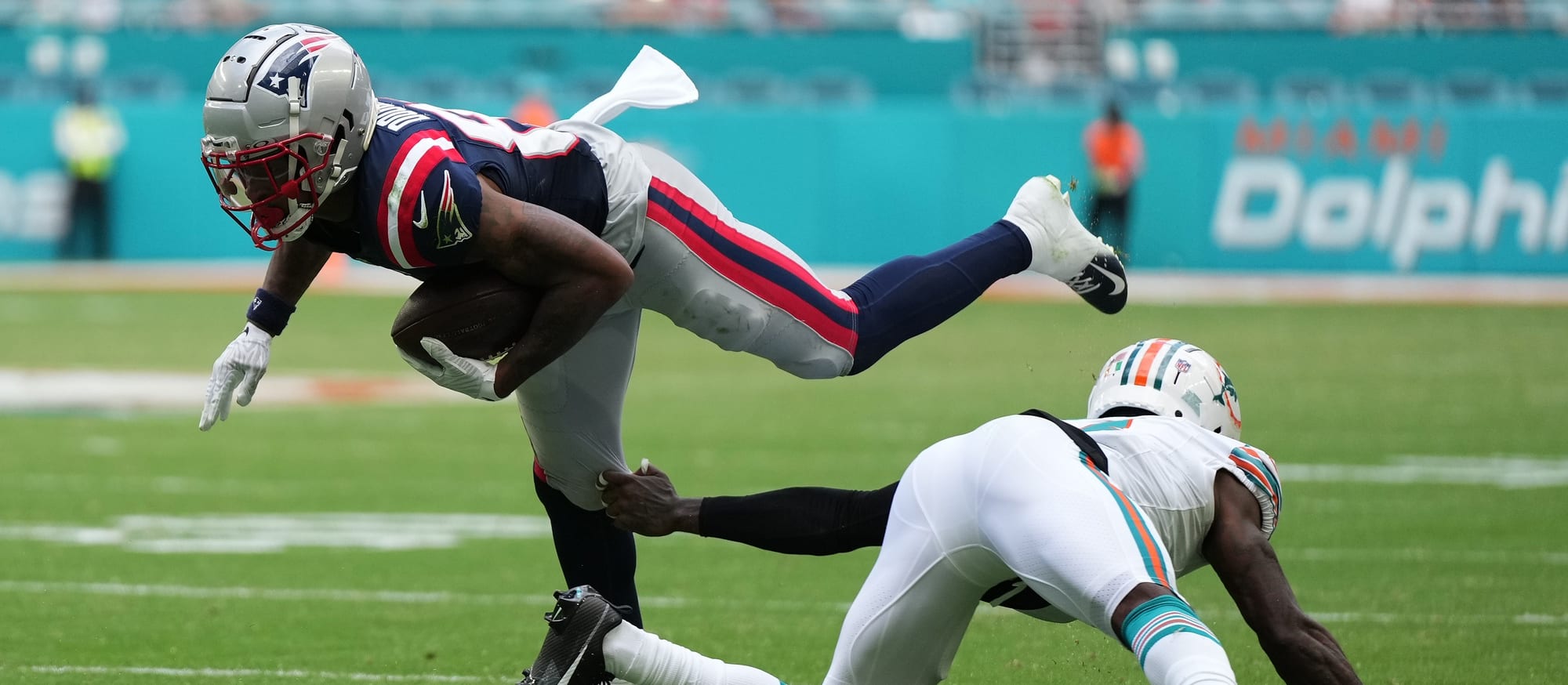


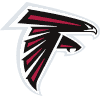 RB
RB 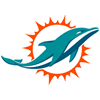 RB
RB  RB
RB  WR
WR  WR
WR  WR
WR  TE
TE 
